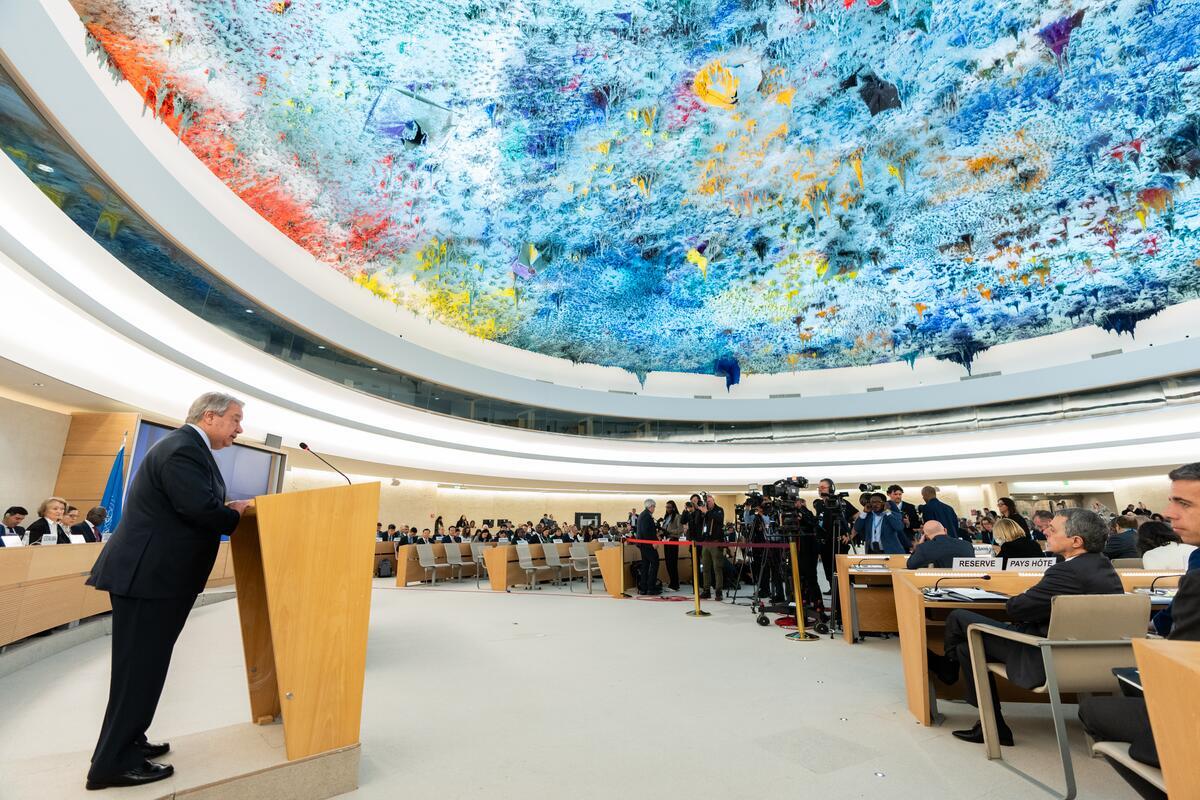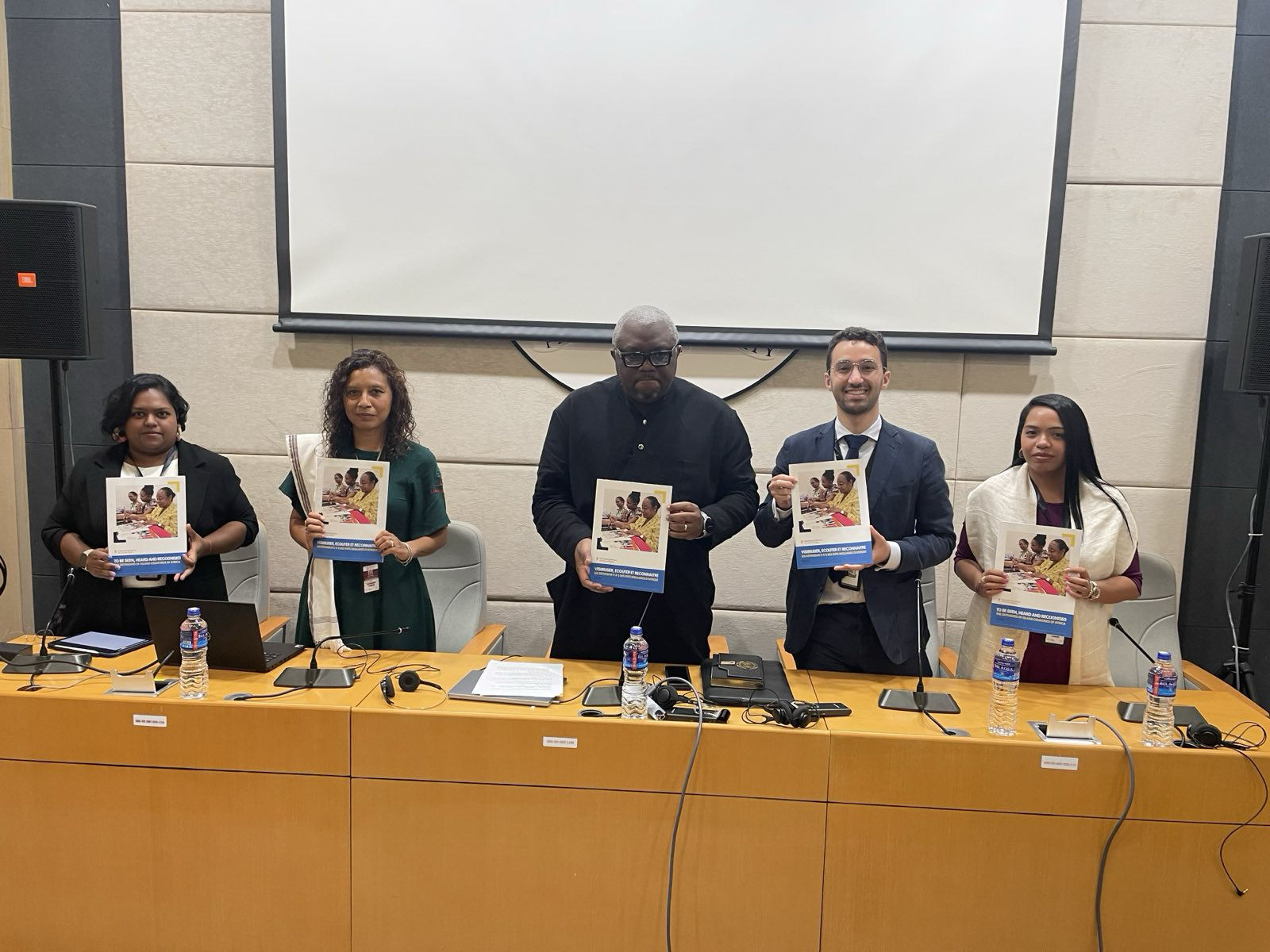The NGO Forum of the 85th session of the African Commission on Human and Peoples’ Rights (ACHPR) focused on structural injustices in Africa, where colonial debt, exploitative labour systems, and descent-based discrimination remain a root cause for a number of human rights violations.
African human rights defenders called for dismantling these intersecting legacies: cancelling odious debts that drain sovereignty, confronting caste- and slavery-based hierarchies that persist within communities, and demanding reparations for centuries of extraction. True justice requires restoring not only what was stolen, but what was silenced by affirming dignity, agency, and self-determination. Reparations, in this vision, are not charity, but the foundation for a liberated and equitable African future.
These timely discussions at the NGO Forum come at the backdrop of the African Union’s theme on ‘Justice for Africans & People of African Descent through Reparations’ which has been extended to a decade, building on the African Charter, Abuja and Accra Declarations as well as the resolution 616 of the ACHPR.
UN human rights mechanisms, including the Special Rapporteur on racism and the Working Group of Experts on People of African Descent have amplified calls for reparations in their 2019 and 2025 respective reports, as well as the High Commissioner and the Second Decade for People of African Descent and the UN Permanent Forum on People of African Descent.
Currently, CERD, which participated in a panel at the NGO forum and the ACHPR session, is currently developing its General Comment on the right to reparations. These normative developments are grounded in the Durban Declaration and Programme of Action (DDPA) and ICERD.
ISHR has been supporting human rights defenders and NGOs advancing racial justice, through the UN Anti-Racism Coalition (UNARC), to advance international standards on reparations at the UN Human Rights Council, urging States to fully implement the Durban Declaration and Programme of Action (DDPA) as a form of reparations.
Ending systemic racism includes dismantling the structures and systems designed and shaped by slavery, colonialism and successive policies and systems of racial discrimination.
Prior to the transatlantic trade in enslaved Africans and colonialism, forms of slavery existed in Africa based on traditional hierarchies and caste systems.These institutionalised hierarchical systems were consolidated under colonisation and led to structural discrimination against communities based on work and descent in Africa.
Yet, State institutions continue to deny these forms of discrimination and anti-slavery defenders face attacks to impede them from exposing and denouncing it. In 2024, the ACHPR adopted a resolution which urged State Parties ‘to formally acknowledge the existence of discrimination based on work and descent as a distinct form of discrimination affecting people within the continent and requires immediate attention’.
Reparative justice requires transformative change to correct the wrongs of the past, end those of the present and prevent those of the future. This includes calls for reform of the multilateral system, including the global financial architecture, climate justice, as well as debt cancellation and ending illicit financial flows.
African human right defenders made the case for the establishment of an African independent expert on debt, taxation, and the illicit financial flows in Africa to advance demands for debt cancellation within the reparations agenda. The mandate would advance economic, social and cultural rights, promote human rights based fiscal governance, combat corruption, regional cooperation, improve domestic resource mobilisation, consolidate the ongoing work of relevant African actors, raise awareness, promote accountability and transparency, encourage of participation of citizens in the budget process and loan contraction and align economic policies with African governments’ human rights obligations.
Professor Attiya Waris, the UN Independent Expert on Foreign Debt, Other International Financial Obligations and Human Rights voiced her full support for the establishment of the African mandate.
A key message from the start of the NGO Forum during the inaugural panel on reparations that resonated across the other panels was the indispensable role of civil society in holding governments accountable, conceptualising and advocating for reparative justice at the national, regional and international levels, as well as the importance of building and working in coalitions.
ISHR will continue working with UNARC and supporting racial justice defenders in advancing the reparations agenda at the African Commission and the UN, advocating for the adoption of victim-centred approaches and meaningful, safe civil society access and participation.




